Polypropylene
Polypropylene is a synthetic rope material that works well for general use. It is lightweight and does not absorb water, which allows the rope to float and makes it particularly useful for marine applications and pools. It has medium stretch characteristics that will overtime allow the rope to slowly stretch and not return to its original length (creep). Ultraviolet (UV) light inhibitors have been added to prevent degradation. Relative to other synthetic ropes, polypropylene is poor at holding knots and has limited abrasion resistance.
Warning: Do not use for overhead lifting, support of human weight or athletic equipment, Do not exceed safe working load detailed on the package. Shock loads (stress, jerk) can reduce working loads by as much as 33%. Never stand in line with ropes under tension; rope (especially nylon) may recoil or snap back. Knots reduce rope strength by 40%. Replace the rope if there are signs of wear, such as broken fibers.
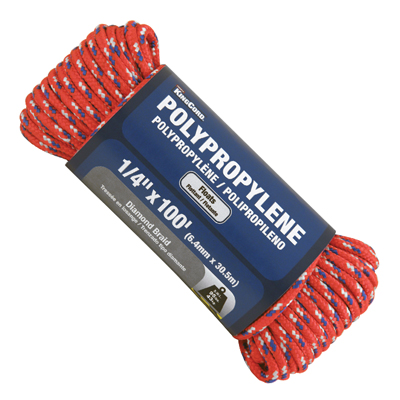
Rope Selection Guide
| Polypropylene | Nylon | Polyester | Cotton | Manila/Sisal/Jute | Clothesline | |
 |
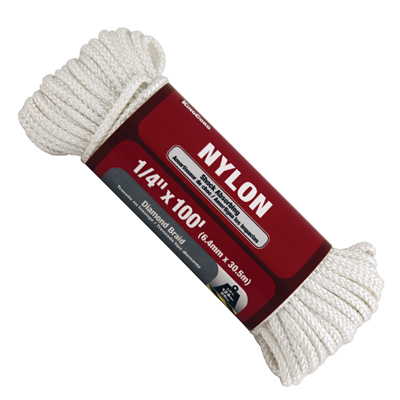 |
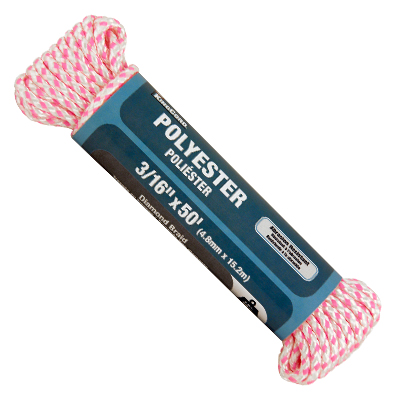 |
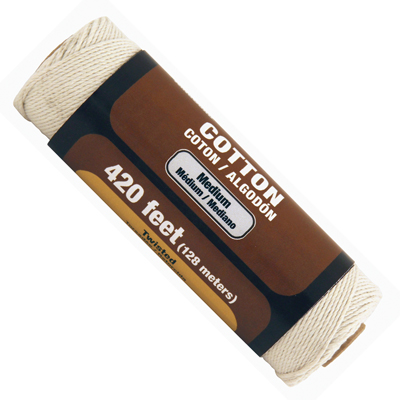 |
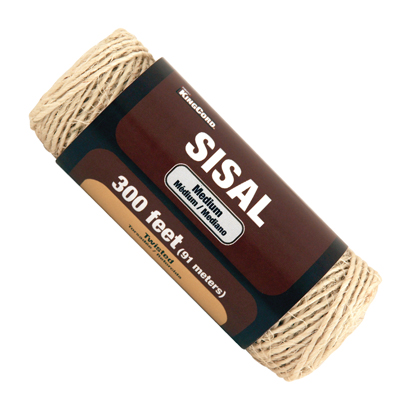 |
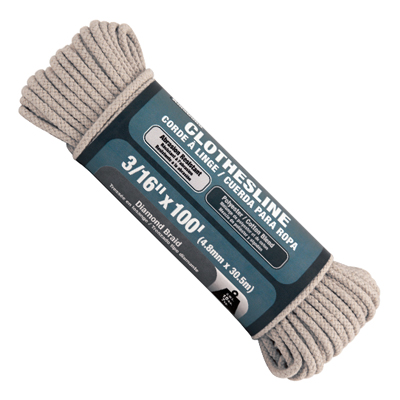 |
|
| Strength |    |
    |
   |
 |
 |
   |
| Shock Load Ability |    |
    |
  |
 |
 |
  |
| Floats or Sinks in Water | Floats | Sinks | Sinks | Sinks | Sinks | Sinks |
| Melting Point | 330°F | 480°F | 500°F | Burns | Burns | 500°F |
| Abrasion Resistance |   |
   |
    |
 |
 |
   |
| Resistance to Sunlight |   |
  |
    |
    |
    |
    |
| Resistance to Rot and Mildew |     |
    |
    |
 |
 |
    |
| Resistance to Oil and Gas |     |
    |
    |
 |
 |
    |
| Flexing Endurance |    |
    |
  |
 |
 |
  |
| Store Wet or Dry | Wet or Dry | Wet or Dry | Wet or Dry | Dry Only | Dry Only | Wet or Dry |
| Stretch Resistance |   |
 |
    |
    |
    |
    |
Reference Chart
| Trade Size | Imperial Size |
| #3 | 3/32″ |
| #4 | 1/8″ |
| #4.5 | 9/64″ |
| #5 | 5/32″ |
| #6 | 3/16″ |
| #7 | 7/32″ |
| #8 | 1/4″ |
| #10 | 5/16″ |
| #12 | 3/8″ |
Rope Construction Guide
| Double Diamond Braid | Diamond Braid | Twisted | Smooth Braid | Hollow Core | |
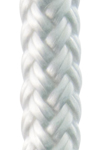 |
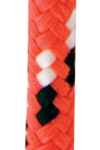 |
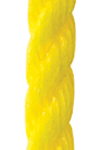 |
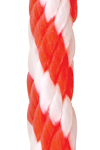 |
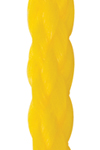 |
|
| Spliceable |  |
 |
  |
No |    |
| Flexibility |   |
  |
  |
   |
    |
| Flattens Under Load | No | Yes | No | No | Yes |
| Rotates Under Load | No | No | Yes | No | No |
| Knot-Holding Ability |     |
    |
  |
   |
   |
Comparisons
| Solid Braid | = | Smooth Braid |
| Sash Cord | = | Cotton or Polypropylene Cord |
| Derby Rope | = | Solid/Smooth Braid Polypropylene |
| Double Braid is NOT the same as Diamond Braid | ||
| Seine Twine | = | Diamond Braid Twine |
| Mason’s Line | = | Twisted Twine |
| Maypole | = | Diamond Braid |